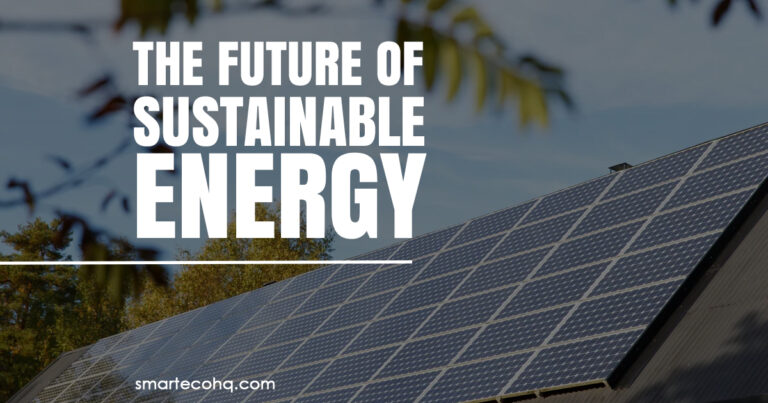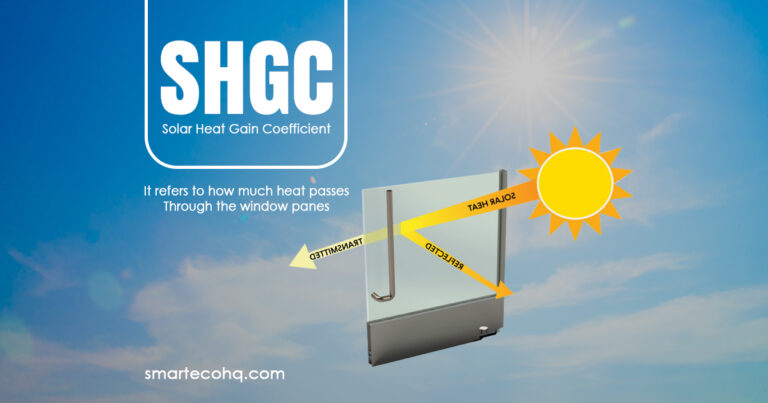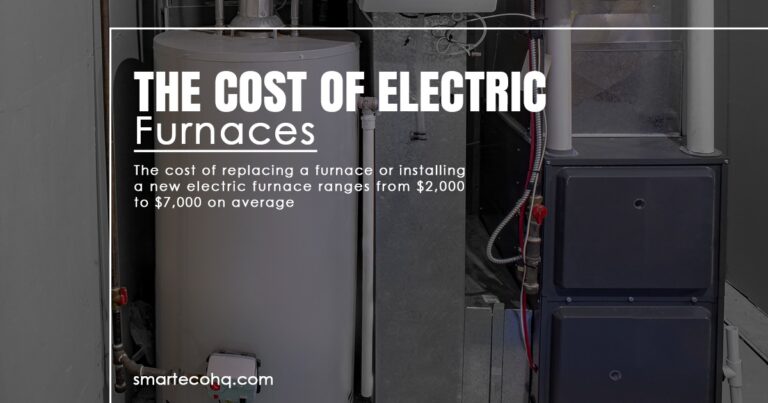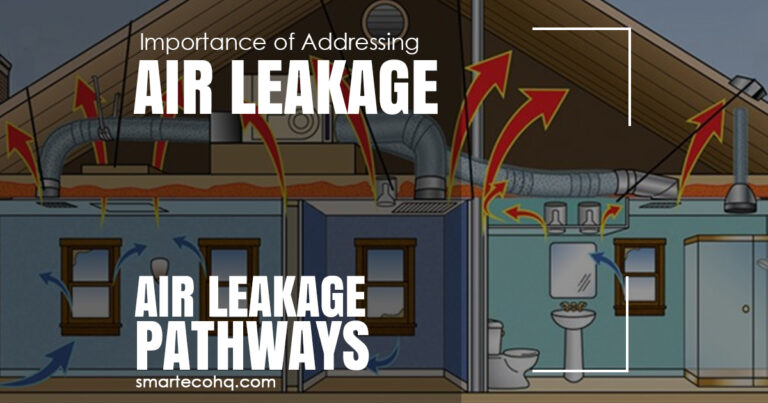Solar Battery Cost: Understanding the Investment in Energy Storage
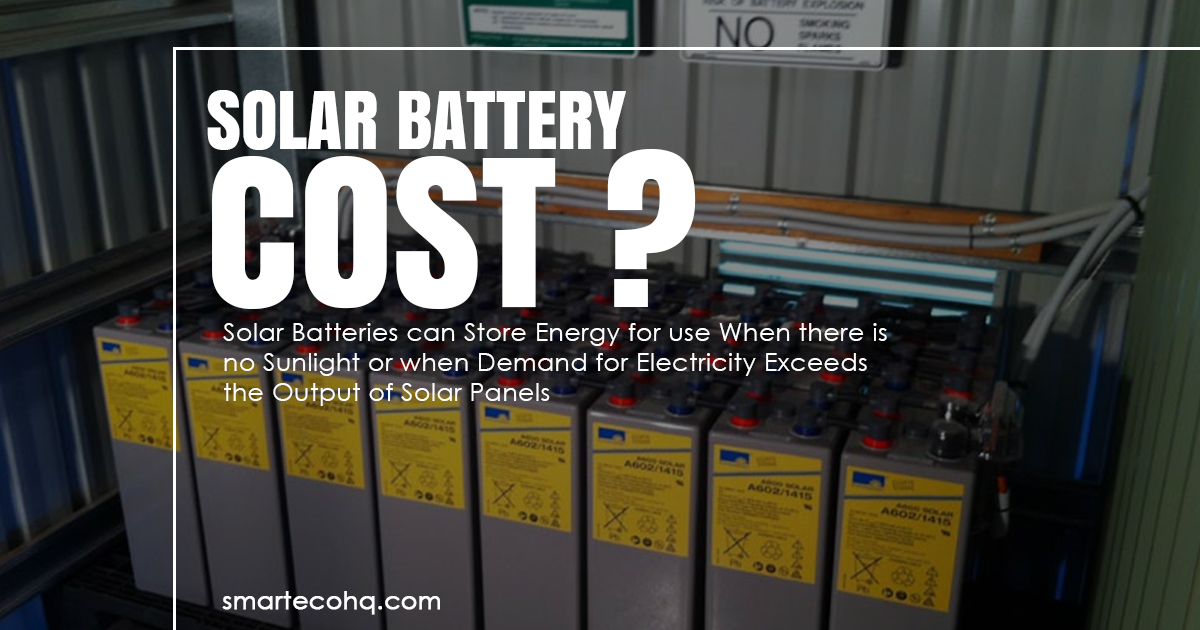
Solar Battery Cost :
How much does a complete solar panel battery system cost?
Many individuals and companies are investigating the addition of solar batteries to improve the efficiency and reliability of their solar power systems.
These batteries store extra solar energy for use during periods of low sunlight or high energy demand. However, before investing in a solar battery system, it is critical to understand the costs involved. In this post, we will look at the elements that determine solar battery costs as well as the investment needed for energy storage.
Average Solar Battery System Cost
The cost of a solar battery varies depending on a number of factors, including the battery’s capacity, chemistry, lifespan, installation costs, and any government incentives or rebates available. For a typical residential installation, a solar battery can cost between $5,000 and $7,000 on average. Larger batteries with higher capacities, on the other hand, can cost $10,000 or more. When determining the cost-effectiveness of investing in a solar battery, it is critical to consider the long-term benefits of using one, such as lower energy bills and a lower carbon footprint. Furthermore, government incentives and rebates can significantly reduce the cost of a solar battery, making it a more cost-effective option for homeowners and businesses.
Factors Affecting Solar Battery Cost
Several factors affect the cost of a solar battery, including:
Battery Power
The capacity or size of the solar battery influences its price significantly. The capacity of a battery is measured in kilowatt-hours (kWh) and signifies the amount of energy it can store. Larger capacity batteries are more expensive, but they can store more energy, offering additional backup power and autonomy.
Battery Capacity
The capacity or size of the solar battery influences its price significantly. The capacity of a battery is measured in kilowatt-hours (kWh) and signifies the amount of energy it can store. Larger capacity batteries are more expensive, but they can store more energy, offering additional backup power and autonomy.
The Chemistry of Batteries
The cost of a battery can also be influenced by its chemistry. Lithium-ion batteries are typically more expensive than lead-acid batteries, but they provide greater efficiency and a longer lifespan.
Manufacturer
The cost of a solar battery can also be influenced by its manufacturer. Because of their brand reputation or advanced features, some manufacturers may charge a higher price for their batteries.
Costs of Installation
The cost of solar batteries can also be significantly influenced by installation costs. Professional installation can range from $1,000 to $3,000, depending on the installation’s complexity and location. This covers labor rates for system installation, electrical wiring, and solar power system hookups. Professional installation assures optimal performance and compliance with safety regulations.
Brand Recognition
The price of solar batteries can also be affected by brand reputation. Established brands that have a good reputation for quality and dependability may charge a higher price for their batteries.
Warranty Duration
The manufacturer’s warranty period can also affect the price of the battery. Batteries with longer warranties may be more expensive than those with shorter warranties.
ROI (Return on Investment):
The consideration of ROI & Financial benefits is important while determining the cost of batteries. The following steps are important to consider:
Electricity Bill savings
Solar batteries enable you to store excess energy during periods of low demand and use it when electricity rates are higher or power outages occur. This can result in significant electricity bill savings, particularly in places with time-of-use or demand-based pricing models.
Incentives
Many areas and countries provide incentives and tax breaks to encourage the use of solar energy and storage systems. These financial incentives can help defray the initial expenses of establishing a solar battery system while also increasing the overall return on investment.
Energy Independence
One of the primary benefits of a solar battery system is its capacity to function independently of the power grid during disruptions. This gives you peace of mind and ensures an uninterrupted power supply, which is especially important in places prone to blackouts or where grid reliability is an issue.
Long-Term Investment
Purchasing a solar battery system helps you protect yourself against potential spikes in electricity rates. As energy prices rise, your solar battery system can provide a consistent and economical source of power, resulting in long-term savings.
Eco-Friendly
While not directly monetary, the environmental advantages of solar battery systems are priceless. You can help the environment by reducing your reliance on fossil fuels and lowering your carbon footprint.
How do solar batteries work?
When solar panels produce excess energy, it is stored in a solar battery. Stored energy can be used when there is little sunshine or a significant demand for electricity. Solar batteries are generally built with solar panel systems, and they work by converting direct current (DC) electricity generated by the solar panels into alternating current (AC) electricity that may be utilized to power homes and businesses.
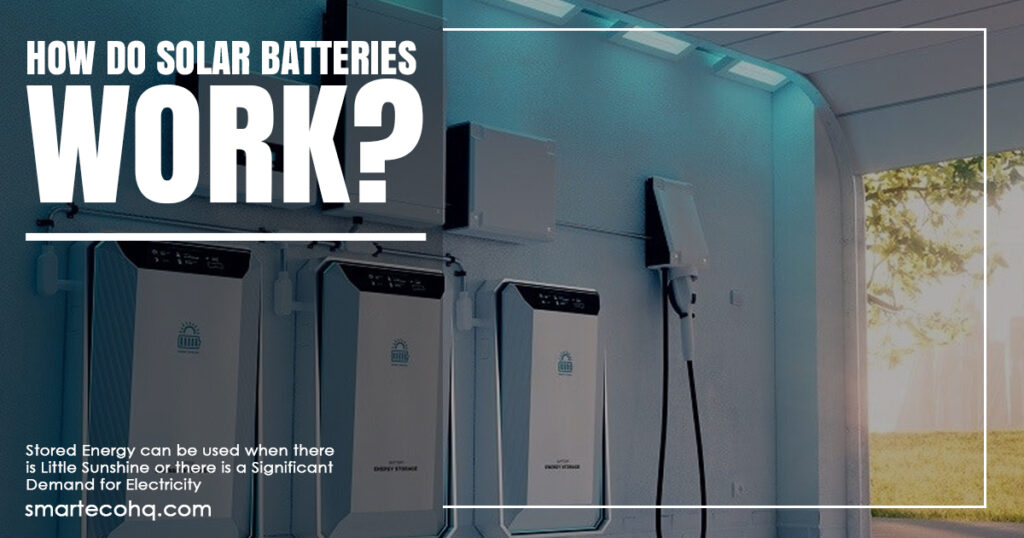
Types of Solar Batteries
Lead-Acid Batteries:
Lead-Acid Batteries are the most common and oldest type of battery used in solar power systems. Because they are inexpensive and dependable, they are a popular choice for home solar systems.
There are two kinds of batteries: Flooded and Sealed. Flooded batteries need to be topped up with distilled water on a regular basis, whereas sealed batteries do not. Lead-Acid Batteries have a shorter lifespan than newer battery technologies.
Lithium-ion batteries:
Lithium-Ion Batteries have risen in popularity in recent years due to their high energy density, long duration, and low maintenance requirements. They are more expensive than Lead-Acid Batteries but because of their longer lifespan and higher efficiency they deliver a better ROI. Lithium-Ion batteries are also significantly lighter and smaller than Lead-Acid Batteries, making them easier to install in tight quarters.
Saltwater Batteries:
Seawater Batteries are a relatively new form of battery that employs seawater as an electrolyte rather than acid or alkaline. They are non-toxic, non-flammable and have a 10 year lifespan. Saltwater batteries are likewise less expensive than Lithium-Ion Batteries but they have a lower energy density, which means that more batteries are required to store the same amount of energy.
Nickel-Cadmium Batteries:
Nickel-Cadmium Batteries are an older technology that is still utilized in some solar power systems. They have a long lifespan and are resistant to overcharging and over discharging, making them a dependable choice. However, they are less efficient than Lithium-Ion Batteries and contain dangerous compounds that must be disposed of properly.
Flow Batteries:
Flow Batteries are modern energy storage devices that store energy in two tanks of liquid electrolyte. Because they have a lengthy life cycle and are extremely scalable, they are perfect for large-scale solar power systems. Flow Batteries can also discharge their energy gradually and consistently, making them perfect for applications requiring constant power output.
Hybrid batteries:
Hybrid batteries are made up of two or more different types of batteries, such as lead-acid and lithium-ion. They are intended to provide the advantages of both types of batteries, such as the low cost of batteries made from lead acid and the long life of Lithium-Ion Batteries.
Zinc-Carbon Batteries:
Zinc-Carbon Batteries are a low-cost and low-maintenance choice for solar power systems. They have a lower life expectancy than Lithium-Ion or Lead-Acid batteries, but they are less expensive and do not require routine maintenance.
Sodium-Nickel Chloride Batteries:
Sodium-Nickel Chloride batteries, a newer type of battery, employ molten salt as an electrolyte. They have a high energy density, can last up to 20 years, and are non-toxic and inert. However, they are still rather expensive when compared to other battery technologies.
Pros and Cons of Solar Batteries
Pros of Solar Batteries
Energy Independence:
Solar batteries provide energy independence by allowing homeowners and businesses to generate and store their own energy instead of relying on the power grid.
Lower Energy Bills:
Solar battery storage can help reduce utility costs by allowing individuals and businesses to use the energy generated by their solar panels when electricity rates are highest.
Backup Power:
During power outages, solar batteries can provide backup power, ensuring that essential appliances and devices continue to function.
Environmentally Friendly:
By reducing reliance on fossil fuels, using solar batteries to store energy generated by solar panels can help reduce the carbon footprint of homes and businesses.
Increased Home Value:
Adding solar panels and a solar battery to a home can raise its value and make it more appealing to potential buyers.
Cons of Solar Batteries
Upfront Cost:
The initial cost of buying and installing solar battery systems can be high, which could discourage certain homeowners and companies from making investments in them.
Limited Lifespan:
Solar batteries have a limited lifespan and will eventually need to be replaced, adding to the overall cost of the solar power system.
Limited Capacity:
Solar battery capacity is limited, so they may not be able to power a home or business during times of high energy demand.
Maintenance:
Solar batteries require routine maintenance to ensure proper operation and to extend their lifespan.
Concerns About Safety:
Solar batteries can be potentially dangerous when improperly installed and maintained, and they may cause a fire or explosion if damaged.
Conclusion
Finally, The cost of solar batteries is an important factor to consider for anyone thinking about investing in a solar power system. While solar batteries can provide energy independence, lower energy bills and environmental benefits, their initial costs may be prohibitive for some homeowners and businesses. It is critical to thoroughly research and compare the costs and benefits of various types of solar batteries, as well as to work with a reputable installer, to ensure that the system is properly designed and installed. Despite the initial investment, the long-term savings and environmental benefits of solar batteries make them an appealing option for many homeowners and businesses looking to reduce their energy costs and carbon footprint.

